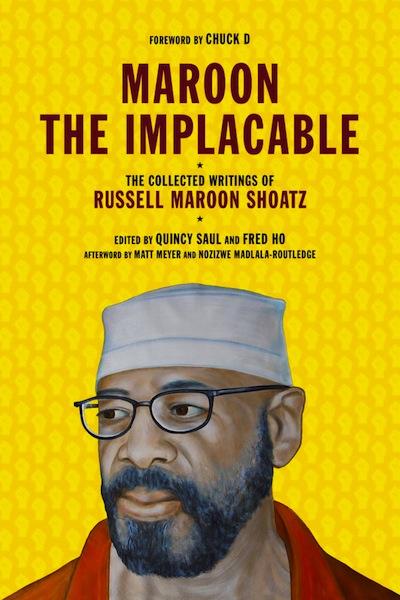Please support our coverage of democratic movements and become a supporting member of rabble.ca.
There is only one political prisoner in the United States who openly identifies as a feminist and ecosocialist. His name is Russell Maroon Shoatz. He was a member of the Black Unity Council and the Black Panthers. He has been in prison for the past 40 years and for the last 20 he has been in solitary confinement in Pennsylvania’s State Correctional Institution.
In 1970 Shoatz and five others were accused of an attack on a police station in Philadelphia that led to the death of a police officer. He was convicted and sentenced to serve multiple life terms without possibility of parole. In 1977 he escaped the maximum security penitentiary and hid in a forest before he was caught 27 days later. Three years later he broke out of jail again for a few days. He has been in solitary confinement since 1989. His escapes inspired other prisoners to nickname him “Maroon” after the many escaped slaves who built autonomous communities of resistance in the Americas during the era of slavery.
Maroon is locked up within a “control unit” in which he is forced to spend 23 hours a day alone in a ceaselessly illuminated six-foot by 12-foot windowless cell. He is allowed out of solitary confinement, handcuffed, for one hour a day. He can take a shower three times a week for 10 minutes. He has had no physical contact with another human being despite having an excellent disciplinary record for the past 23 years. The control unit is often interpreted as a prison within the prison designed to break the spirit of the inmate.
In this one prisoner’s case the opposite has occurred. A book of his essays, Maroon the Implacable: The Collected Writings of Russell Maroon Shoatz, edited by Fred Ho and Quincy Saul, was recently published by PM Press in conjunction with the group Ecosocialist Horizons. The book gathers his powerful insights on political prisoners, the Black liberation struggle, feminism, the Occupy movement, the question of violence, ecosocialism and organizational methods.
The essay “The Dragon and the Hydra” compares a centralized political strategy with a decentralized one. Maroon notes that vanguard movements always struggle for supremacy not only over the oppressor but ultimately over the oppressed as well. He contends that Stalinism was not simply the product of immoral human beings but instead the inevitable outcome of the attempt at unifying the administrative and political organization of the state under the control of a vanguard political party. In the book he insightfully notes that the vanguardist strategy may have had much more in common with patriarchy than it ever cared to admit. He contrasts this non-matriarchal “Dragon” strategy with that of a decentralized “Hydra”: the Hydra refers to a mythical serpent with nine heads. Every time an assailant cuts off one of its heads two would sprout back to replace the lost one. Shoatz argues that the success of maroon communities in resisting imperialism in Dutch-occupied Surinam from the mid-1600s to the 1970s rested not on their centralizing capacity but on their ability to develop democratic methods of co-ordination among different constituencies.
Slave masters intentionally imported slaves of diverse ethnicities, languages and cultural practices from various parts of Africa in order to prevent understanding, solidarity and co-operation. Escaped slaves turned this situation into an advantage. Given the coexistence of profound cultural differences with a need to resist the colonizer’s attempt to dominate them, they were compelled to develop decentralized, co-ordinated forms of organizing. They were successful. Maroon communities have remained autonomous from imperialists and aggressive states for hundreds of years. Shoatz proposes that this same decentralized, co-ordinated, democratic strategy should be used by activists aspiring to create a better world.
Ecologists, feminists and socialists should read this book and rally to its author’s cause. For information on the international campaign to free Russell Maroon Shoatz visit: http://russellmaroonshoats.wordpress.com/
Thomas Ponniah is an Affiliate of the David Rockefeller Center for Latin America Studies and an Associate of the Department of African and African-American Studies at Harvard University.



